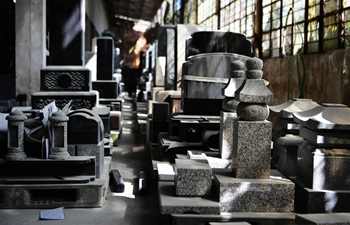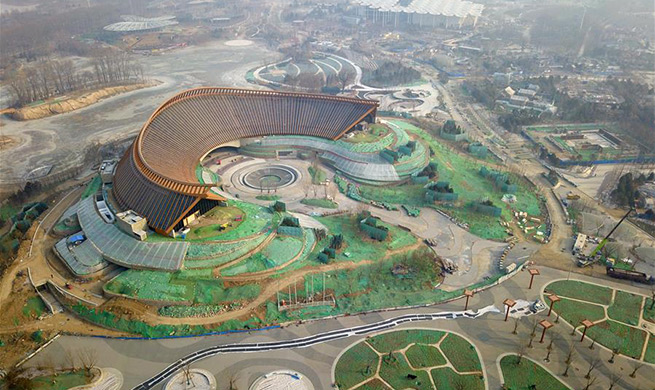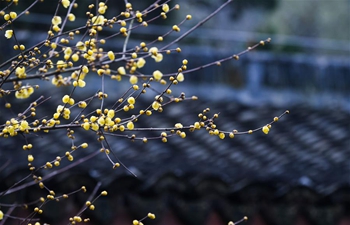HARBIN, Jan. 20 (Xinhua) -- Yang Lai, who owns 18 hectares of paddy fields in northeastern China's major grain-growing province Heilongjiang, left his land unsown for a whole year in 2018 to restore its fertility.
Yang's year-long break as a farmer was encouraged and supported by a three-year fallow program introduced by Heilongjiang Province last year, a systematic move of the province driven by nationwide policy.
Heilongjiang Province known for its fertile black soil, saw total grain output of 75.05 billion kg in 2018, accounting for over 10 percent of the country's total grain output, according to the National Bureau of Statistics.
Though the province has yielded years of good harvests, Heilongjiang faces difficulties in sustainable development due to the overuse of fertilizers, frequent droughts and water shortages.
"People need to take a break after they get tired, and so does the land," said Yang, adding that the province doled out subsidies to farmers like him who were not actually farming last year.
Yang received over 80,000 yuan (about 11,823 U.S. dollars) in subsidies for his 18 hectares of fallow rice fields. Yang said his paddy fields yield in 2017 far below the average output as Yang's land had lost fertility over the years as a result of overusing fertilizers.
"Rice fallows not only improve the productivity of my land, making it possible to grow organic food after three years, but also allow surplus labor at my home to start our own businesses to increase income," Yang said.
Yang's family had a total income of 140,000 yuan in 2018, among which nearly 60,000 yuan was earned by doing business. Their sales revenue of crops only accounted for 28 percent of their income.
In Heilongjiang, more farmers, enterprises and local governments have joined the campaign for sustainable agricultural development in which quality outweighs quantity.
The province will continue its efforts in securing food production capacity and enhance its green food production, according to the province's 2019 government work report.
In addition to fallow rice field, nitrogen, phosphorous and potash fertilizers, crop rotation and river irrigation have also been gaining popularity to enhance crop output, driven by an increasing awareness of the crucial need for balanced fertilization.

















